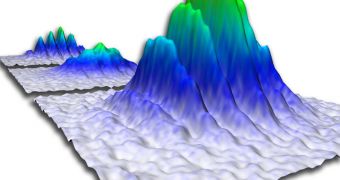It would appear that measuring the nature quantum entanglement provides data which may be interpreted as a measure for human free will as well, believe two physicists.
The new study was carried out by a team of physicists at the University of Geneva, in Switzerland, and the University of Bristol, in the United Kingdom.
In the Victorian Era, scientists were convinced that the measurements they conducted on various objects, processes or phenomena were objective and absolute.
This holds true for most scientists even now, but not for particle physicists, and for experts dealing with the bizarre field of quantum mechanics.
In these systems, the observed object and the observer are more tightly linked than anyone imaged. In the process of quantum entanglement, for example, a particle can affect another located a vast distance away instantly.
In other words, changes that are instilled in one member of the entangled pair are instantly transmitted to the other member of the pair, regardless of the distance separating the two.
By definition, quantum systems exist in a multitude of states at the same time. It is only when researchers observe the system that the number of states in which it can exist at any given time is reduced to just one.
Physicists Jonathan Barrett from the University of Bristol and Nicolas Gisin from the University of Geneva now propose that experimenters have less free will in conducting their studies than they think.
The two say that a deterministic process appears to develop between researchers and the particles they observe, through the exchange of information between the two systems.
The new theoretical research also suggests that experimenters conducting quantum mechanics research must have full free will. Otherwise, information is exchanged between them and the particles they measure.
If those running the experiments lack free will to even the smallest extent, then it means that the entire field of quantum mechanics can be explained through the influence of hidden variables on any given system, Barrett and Gisin say.
The study raises some interesting philosophical questions about free will, such as what happens when more than two particles become entangled.
In the future, experts may also want to know what happens when particles become only partially entangled, and what effects this has on free will, Technology Review reports.

 14 DAY TRIAL //
14 DAY TRIAL //